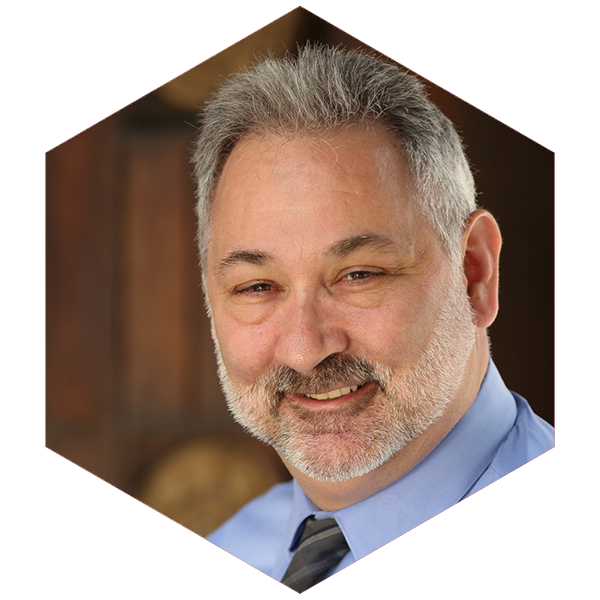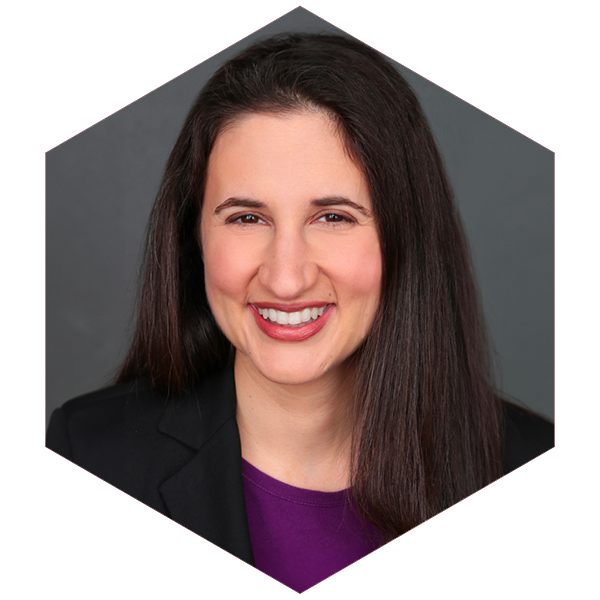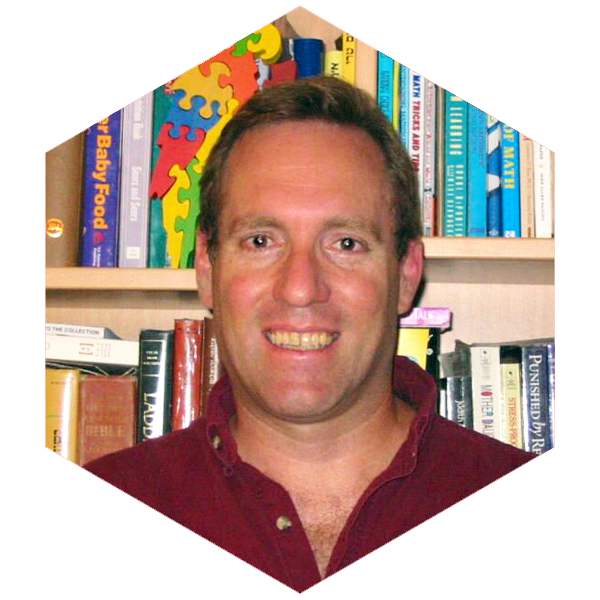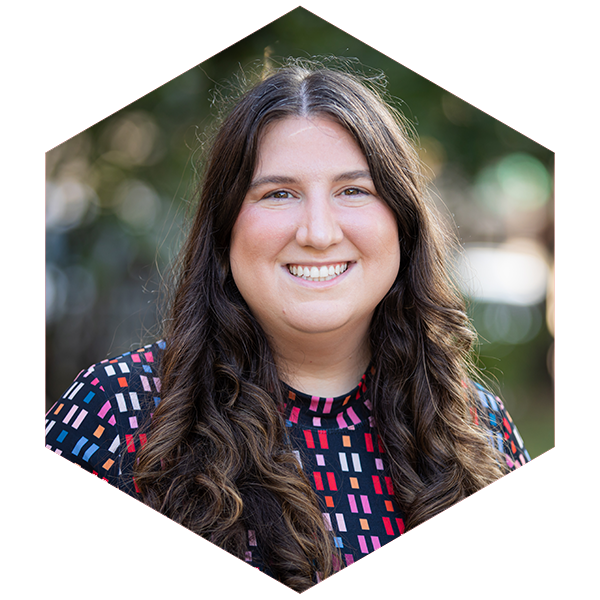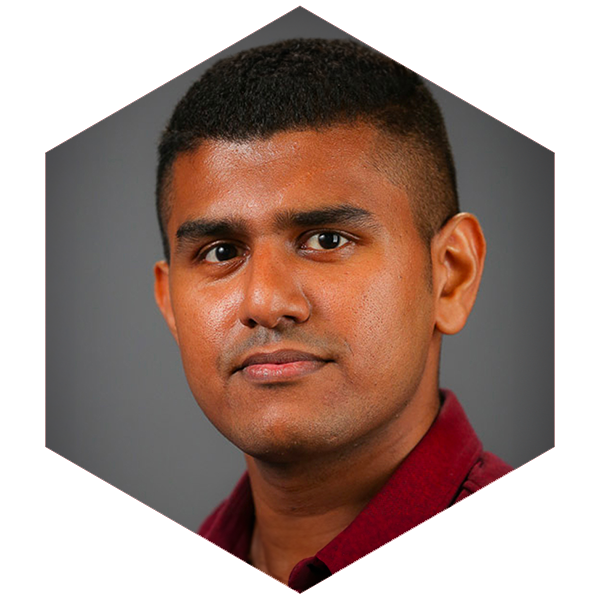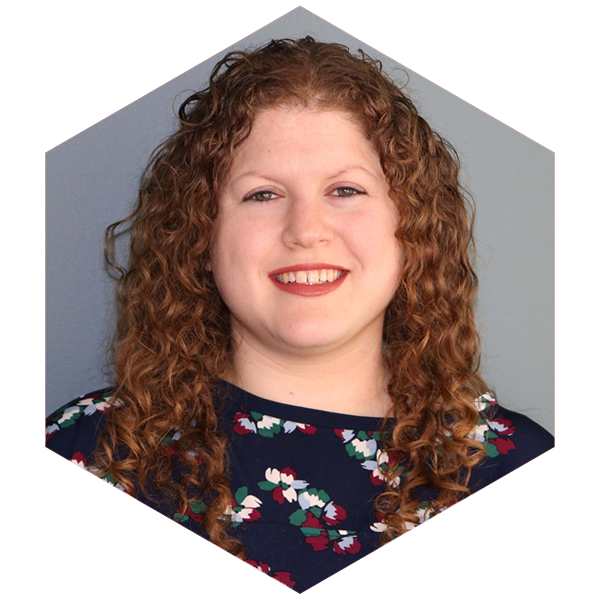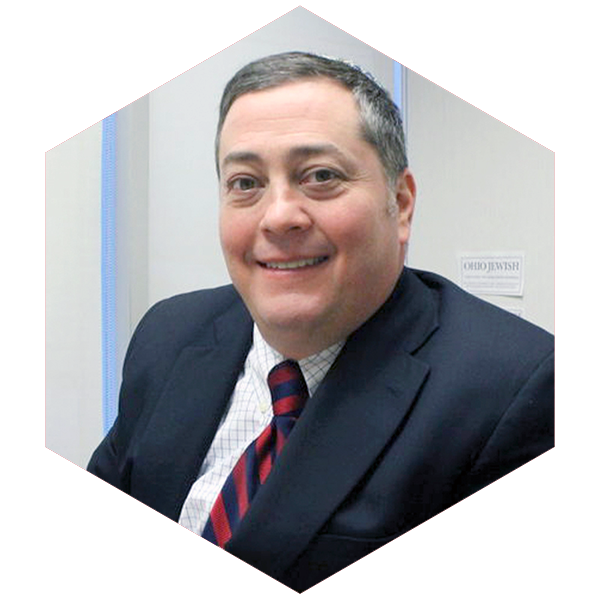Stories
CASJE has already made an impact on members in our growing community. Read what people are saying about how CASJE informs their work.
Illuminating 8 CASJE Projects and Partners in 2024
Illumination, noun, /ᵻˌluməˈneɪʃən/, def. (1) The action of illuminating, a lighting up; (2) divine inspiration; (3) intellectual enlightenment, information and learning.
Research is a form of illumination. Sometimes research reveals what we can’t see ourselves, unearthing information entirely hidden from view. Other times, it makes that which was always present, but overlooked or impenetrable, brighter and legible for the first time. Finally, research can help us see differently, allowing us to appreciate fresh insight by casting a new light or shadow.
This Chanukah, in celebration of the many forms of illumination research can provide, CASJE is happy to highlight some of our work and partners over the last year.

Why CASJE?
Hear from current and former members of the CASJE Advisory Board about why they became involved in Jewish education and specifically CASJE. Learn more about how they see our organization as contributing to the field, and read additional insights related to applied research.
Advancing a Rich Conversation about Hebrew Language Education
Rabbi Andrew Ergas
Chair, Hebrew Language Council
- Read More
-
In my role as Chair of The Council for Hebrew Language and Culture in North America, the central address for Hebrew advocacy, we partnered with CASJE at our most recent North American conference to bring some of the latest writing about Hebrew education to the field. This was an opportunity for teachers of Hebrew,shlichim working in schools, philanthropists, and community leaders to engage in a rich conversation about how the research agenda can be in dialogue with decision makers to create collaboration and a coordinated effort.
CASJE brings a level of academic expertise to key decision makers at the local, regional, and continental level to help guide efforts around the implementation of excellent Hebrew language education, a field with lots of passion and experience but only loosely anchored in the best thinking about second language acquisition, sociolinguistics, and a range of disciplines that can contribute to success outcomes. At the same time, it is important for the research agenda to be informed by the needs, questions and concerns of the field so that intellectually rigorous approaches can be applied in solving systemic challenges. I think CASJE can have profound impact in this regard, making certain that in addition to the wisdom and expertise of teachers, educators, clergy, administrators and the like — each with their own set of lenses and tools — the field is also guided by solid research, sophisticated thinking, insights from literature reviews, and analysis from even the broader field of education and educational research.
As a practitioner who looks to current research to inform my own thinking and writing, I often turn to CASJE publications to gain knowledge on both the state of the field and the research questions being surfaced through CASJE's work. The three recent literature reviews regarding Hebrew language learning expanded my thinking and provided me with insights beyond my own field of inquiry. By bringing members of the CASJE community together with others at the Hebrew Council, personal and organizational relationships have started that can serve as connective tissue to further strengthen the community's capacity to move our shared educational agenda forward. On a very personal level, it was also wonderful to get to know some of the people behind the articles I read, which I integrate into my own thinking and writing, and that guide my work in my organizational and professional settings.
Learning About the Power of Jewish Early Childhood Education
Lesley Said Matsa
Program Officer, Crown Family Philanthropies
- Read More
-
The Crown Family is funding a three-year CASJE research project with two primary aims: 1) to better understand the factors that make Jewish early childhood education programs most successful in reaching and engaging families that are not currently involved in a synagogue or other Jewish institution; and (2) to better understand the approaches that are most successful in bridging these families to greater and long-term engagement with the Jewish community. I have seen first-hand the power of strong early childhood programs to touch families and knit them to the Jewish community. We are eager to unpack the elements that drive the success of these programs, so that the impact can grow.
Early childhood is a pivotal life stage during which families are uniquely open to engaging with the Jewish community. We believe that CASJE’s efforts will add to the knowledgebase of the early childhood field, providing concretely useful data that practitioners and funders alike can use to advance our work in Jewish education and engagement. As a funder specifically, CASJE’s research program has the potential to provide valuable information that will help us give even more strategically to approaches most likely to achieve the outcomes we seek.
The research in early childhood education will begin soon, and I am excited about CASJE’s opportunity to provide rich data to inform our work. Moreover, I welcome the progress within the other areas of focus in which CASJE is creating a body of academically rigorous data that can support informed decision making across Jewish education. Through CASJE, I have seen practitioners, researchers, and funders come together, sparking productive conversations that move the field forward.
Working to Fulfill CASJE's Potential
Dr. Ezra Kopelowitz
CEO of Research Success Technologies (ReST) and a Fellow at the Center for Jewish Peoplehood Education
- Read More
-
The CASJE network—a nexus of funders, educators and researchers—is of great personal interest to me and is very important to my work as an applied researcher conducting evaluations for funders that document efforts of Jewish educational organizations. Simply, there is no other professional network like CASJE; its existence enables me to connect to a community of practitioners who share a mutual interest and concern for Jewish education.
I have participated in multiple CASJE processes designed to lead to applied research: First, I was a member of the Israel Education group and wrote a position paper on assessing outcomes in Israel education. More recently, I participated in the Problem Formulation Convening (PFC) for Global Jewish Peoplehood (GJP) Education and was invited to participate in a deeper follow-up conversation with a PFC funder to explore possible next steps.
I think the quality of discussion during the Peoplehood PFC is indicative of the potential of CASJE’s efforts. The PFC brought together a diverse group of researchers, practitioners, and funders for a focused conversation, while also advancing my own understanding of the GJP Education field. As follow-up, we have to continue our meetings and discussions to help shape and advance the field. We have to effectively communicate these advancements to broader audiences. And of course we have to attract funders who want to commission theoretical or applied work with added value for the field—over and beyond the evaluation of a particular program. This is challenging but it is why CASJE exists.
Going forward, I hope CASJE can effectively break the mold of “academia vs. the field.” CASJE-generated discussions and resulting collaborations need to continue pairing funders, researchers, and practitioners in an authentic fashion so that "usable knowledge" is produced. This knowledge might have great theoretical or academic importance, but its primary audience—and hence its production and packaging—is for funders and practitioners who are able to easily apply and use it. From my perspective, CASJE is moving in this direction and hopefully will succeed. CASJE might also consider how the connections it creates between a researcher such as myself and the community of practitioners can be more ongoing; not limited to a specific project and/or those project participants. Might it be possible, for example, to develop a group of volunteer researchers, funders, and practitioners who can help further CASJE's work, mixing the benefits of volunteers and CASJE's professionals? Already, I have benefited from the CASJE discussions and I believe the field benefits as well from their documentation and publication, which ultimately lead to applied research.
Opportunities for Emerging Scholars
Dr. Amanda Winer
Director of Research and Evaluation, The Jewish Education Project
Former CASJE Advisory Board Emerging Scholar
Former doctoral student in NYU's Education and Jewish Studies program
- Read More
-
During her time as an emerging scholar, Amanda Winer was a PhD candidate from NYU's Education and Jewish Studies program, part of the Applied Statistics, Social Science, and the Humanities (ASH) Department. Amanda is a social psychology researcher with a strong analytic background, including fluency in factor analysis and scale creation, structural equation modeling, multilevel modeling, and data visualization. Amanda has vast interests in individual and community behavior, has participated in and led research projects at NYU, George Washington University, and other institutions. Her dissertation uses mixed methods to investigate the intersecting perceptions of advantage and marginalization across Jewish young adults in higher education for careers in public service. In addition to research, Amanda's other passion is teaching, especially courses that demystify research by abating statistical coding and mathematical-related anxieties. She has served as Instructor of Record for both undergraduate and graduate classes across NYU and has vasts experience teaching in other settings, including teaching yoga and mindfulness in her non-academic time. Amanda was an NRJE Emerging Scholar and UJA-Federation of NY Graduate Fellow.
"It's an honor to serve on the CASJE advisory board, and learn from an organization that I have come to appreciate and admire. CASJE is not simply committed to high-quality research, but also to high-quality relationships between researchers, funders, and practitioners. As a junior researcher, it is especially valuable to have access to many of the fields "greats", who are such generous thought partners and advisors as my career progresses."
Opportunities for Emerging Scholars
Anil Ramachandran Menon
CASJE Seed Grant Research Team Member
PhD candidate and Gerald R. Ford Fellow in the Department of Political Science at the University of Michigan
- Read More
-
I am a PhD candidate and Gerald R. Ford Fellow in the Department of Political Science at the University of Michigan. I study comparative political behavior, historical political economy, and political psychology, with a substantive focus on the political legacy of traumatic experiences. My dissertation consists of three methodologically diverse papers that investigate the sociopolitical legacy of trauma across three settings: Germany, China, and Northern Ireland. Before moving to Ann Arbor, I completed an MSc. in Economic History (Research) at the London School of Economics and Political Science and a B.A. in Economics and History at Middlebury College. I am also an alumnus of the United World Colleges initiative.
How do different depictions of Israel resonate among American Jews from different generations? I am currently designing a study in collaboration with Professor Yehonatan Abramson (The Hebrew University of Jerusalem) and Professor Alon Yakter (Tel Aviv University) to investigate this question. Generous support from CASJE allowed us to convene a workshop of scholars and practitioners within Israel education. We are currently building on the insights from this workshop to design a survey that would allow us to better understand how American Jews from different generations view Israel.
Opportunities for Emerging Scholars
Ilana Huz
CASJE Graduate Intern at Child Trends
Catholic University Department of Psychology
- Read More
-
Ilana is a doctoral candidate in Human Development at Catholic University and a Senior Research Analyst at Child Trends. Her primary research interests center on parenting knowledge, beliefs, and education, parent-child relationships, and parent and child mental health.
“Working on the CASJE Early Childhood Project not only allowed me to build relationships with established leaders in the fields of early childhood education, Jewish education, and family engagement, but also helped me to grow as a qualitative and quantitative researcher. Among many tasks, I greatly enjoyed interviewing national experts in the field of Jewish education and traveling to Jewish ECE programs across the country to conduct interviews and focus groups with administrative staff, teachers, and parents.”
Bringing Research to Camp
Jeremy Fingerman
Chief Executive Officer, Foundation for Jewish Camp
- Read More
-
As a foundation, FJC (Foundation for Jewish Camp) has made data and research a key priority to inform our work to increase the number of children who experience immersive Jewish summers. We’re so pleased to match our drive for data and research with the good thinking and methodologies of CASJE, and to connect with Jewish camping practitioners to advance the conversation. FJC’s relationship with CAJSE is a natural partnership.
We recently completed a Problem Formulation Convening (we like to call it an “opportunity convening”), and already CASJE has broadened our exposure to great thinkers who have improved the way we approach our advocacy work. We have a long-established trust and rapport with practitioners, and through this collective, FJC has been able to bring practitioners and researchers into conversation with each other in that same spirit of rapport. It’s a powerful triumvirate.
The relationships we have seen develop between Jewish-camping researchers and practitioners, as the result of CASJE’s work, will enhance everyone’s efforts. Great explorations are underway for the field.
“Hineini”: Answering the Call
Paul D. Goren
Advisory Board Member
Superintendent of Schools at Evanston/Skokie School District 65
Michael J. Feuer
Advisory Board Member
Dean and Professor of Education, GW's Graduate School of Education and Human Development
- Read More
-
As an education school dean and a district superintendent who have had a longstanding conversation about the virtues of applying education research to the improvement of practice, when an invitation to join CASJE’s advisory board came our way, we both immediately answered, “Hineini (Here I am).”
Why is CASJE so special to us? For Dr. Feuer, CASJE is a bridge connecting two of his passions: applied social science research for education and the advancement of Jewish life and learning. For Dr. Goren, CASJE provides a reconnection to his Jewish roots and offers a new opportunity to think about the reciprocal relationship of research and practice.
While we know that our prior and ongoing experiences will contribute to CASJE’s complex goals, we are grateful for a healthy “balance of trade”: contemplating the definition of leadership in Jewish day schools, for example, and helping craft research questions and metrics to guide improvement, provides a new lens through which to examine issues in our rather more secular settings. Similarly, thinking about Hebrew language instruction or about Jewish camping has both obvious and subtle implications for some of the toughest questions facing education policy, practice, and reform generally. We are honored to be part of this venture and humbled to work with our brilliant colleagues.
Share Your CASJE Experience
If you have participated in a CASJE convening, working group, field experiment, or other activity, contact us to share your story or testimonial.



